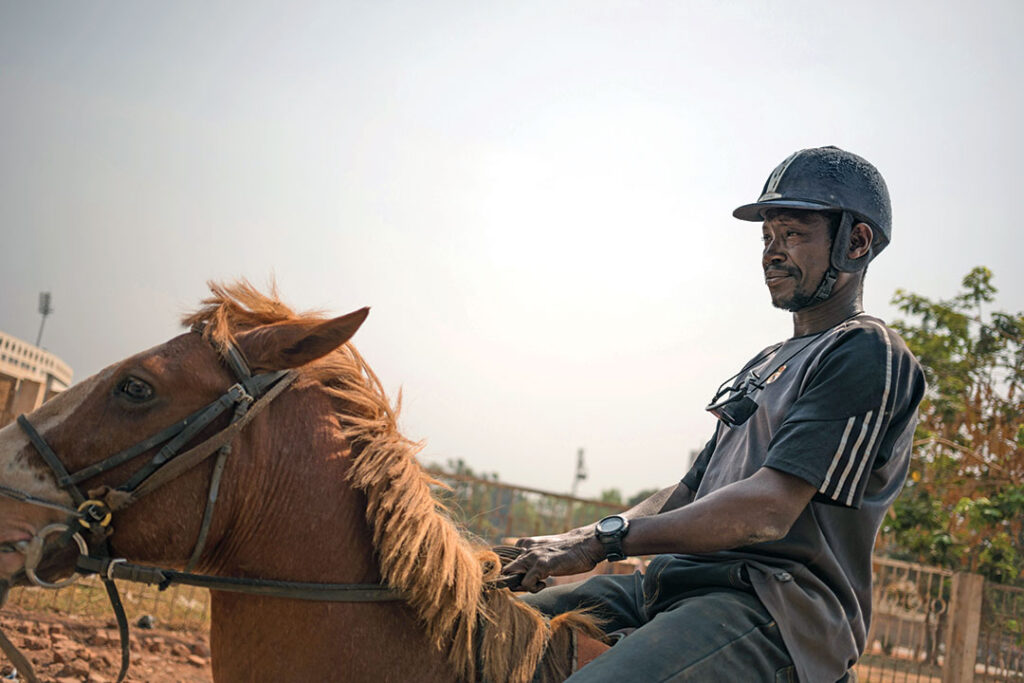AGENCE FRANCE-PRESSE
A chestnut horse appears on a dusty Bangui street, trotting among the bashed-up cars, motorbike taxis and crumbling buildings. The rider is a well-known figure in the capital of the Central African Republic (CAR): Soumaila Zacharia Maidjida, nicknamed “Dida,” is a former sprinter who set a national record for the 800 meters at the 1992 Barcelona Olympics.
He is one of a handful of horse riders in the CAR, a country whose poverty, climate and war make it one of the world’s least equine-friendly environments.
“Everyone knows Dida,” the rider said. “When ministers and bosses want to go out on a horse, it’s me they come to.”
Dida dreams of setting up a horse center but admits the vision is far away. He works as a guard to help feed his animals.
Horses have a troubled history in the CAR, a landlocked country that gained independence from France in 1960.Many people here associate horses with marauders who cross the border on horseback from Chad or Sudan. Older citizens, though, remember Jean-Bedel Bokassa, a horse-loving despot who in 1977 had himself crowned emperor.
Bokassa had a bronze and gold carriage shipped from France to parade around Bangui. On one tragic occasion, two of the horses died of heatstroke under the pitiless tropical sun. Bokassa imported hundreds of horses during his time and even set up a cavalry.
As a child, Dida watched the displays and became excited by the idea of riding a horse.
Bangui had two well-regarded equestrian centers — one was for “high society,” essentially French emigres, and the other was for the public.
In 1996, the halcyon days of the horse in the CAR came to a terrible end. The army mutinied, triggering a cycle of violence and instability from which the country has never recovered. Bangui’s two equestrian centers were abandoned, and the horses were stolen, sold abroad or ended up in market stalls.
Dida managed to save a few of the animals, and today, despite the militia groups who control two-thirds of the country, he still makes the drive to the Chadian border to bring back horses to Bangui.
“Horses are what I live for — I can’t do without them,” he said.

